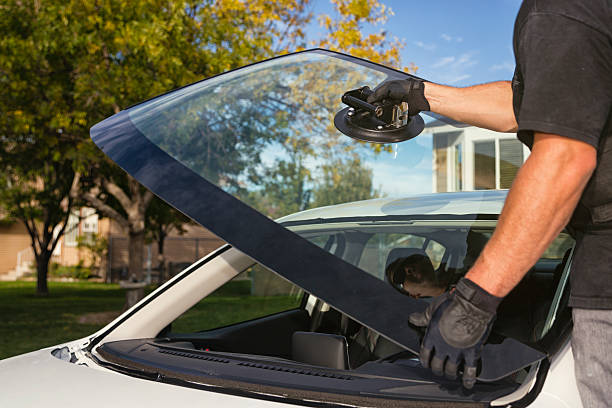Learn From The Best About Smarter Auto Repairs
Learning basic auto repair can help you in so many ways throughout your life. Besides saving money from taking it into a shop, you can teach others how to do the same. Read this article for ways to fix things that commonly break in different makes and models of cars.
Winter Beach Windshield Replacement FL
Ensure your car has an emergency kit. Be sure the kit has tools for charging the battery, adding gas to the tank, and changing tires. In addition, you should have a flashlight with fully charged batteries, a blanket and other things.
When taking your car to the mechanic's, you should not leave before having a complete diagnosis of what needs to be fixed. If the mechanic refuses to look at the car right away or does not want to give you a quote for the issues he diagnosed, find someone else.
If any parts of your car need to be replaced, make sure you ask for the (OEM) Original Equipment Manufacturer parts instead of generic parts. Keeping the exact specifications required by the manufacturer is essential in having optimum performance. Although generic parts are cheaper, spending a little more on OEM parts will make a big impact on your car's longevity.
Know your car before taking it in for any auto repairs. If you have little knowledge on the specs of your model car, you may end up being taken for a ride without you knowing it. Read through your manual at the bare minimum before going for any larger repairs.
There are no standard warranties on repairs. Make sure you are aware of what your warranty covers and that you have it in writing. Warranties may have limitations such as deductibles, mileage, time, businesses authorized to do the warranty work or special steps needed to get reimbursement. Know your warranty rights.
Ask about labor rates and prices before giving the keys to a shop. Sometimes it's easy to spot the rates on the wall, but read them carefully. This will give you a better idea of what you will be billed. Shops also often give you estimated repair costs and times. Some minor repairs could even be an all day job.
A dent or scratch in a plastic bumper is very easy to fix. Start by cutting the bits that stick out from the dent until the edges are smooth. You can then use a filler to make the dent disappear. Sand over the area and paint to hide the repair.
Stick with Original Equipment Manufacturer (OEM) components. If your car needs parts, choose OEM parts over generic ones. For optimum performance, you should have the OEM parts that are up to the manufacturer's standards. While generic parts are cheaper, they're generally a lower quality than the original ones. This means that you may pay more later for replacements.
Be responsible when performing DIY auto repairs. Just about every item you might replace or repair on a vehicle is environmentally unfriendly. Take care to dispose of liquids such as motor oil and coolant properly. Take used parts to your local junk yard or recycling center. Don't toss plastic bottles about the landscape. If you are unsure of where you can dispose of these items, check with your local waste disposal agency or an automotive supply store.
Make sure that the auto repair shop you go to offers a warranty on their services. There are plenty of repair shops that will do a shoddy job, and there is nothing you can do about that if you have no warranty. A warranty will give you the opportunity to get the problem fixed for no charge.
Keep full copies of all of your auto repair work orders and every receipt as well. You'll want to have this proof available if any workmanship issues crop up. Plus, when you are selling the car, you'll tend to get more value for it when you are able to show exactly what has been repaired and how.
Do not ignore unusual noises you hear when driving. Clunks, screeches, clicks and pings are usually caused by loose parts. Take your car to a trustworthy mechanic and describe the noise as best as you can. Your mechanic will probably replace or adjust the parts that were causing the noise.
If your brakes are having issues and you try to correct the problem, always bleed them before you start the car back up again. After bleeding your breaks, make sure that you pump your brake fluid. Test to make sure that you don't have any leaks. Then test drive the car on a road that has minimal traffic. Do not accelerate until you are sure your brakes work well.
Rather than running to the mechanic each time you hear a funny noise or your breaks start to slip, you can depend on yourself. The tips in this article should get you started with basic auto repair. Remember them the next time you're having issues with your car for any reason.

